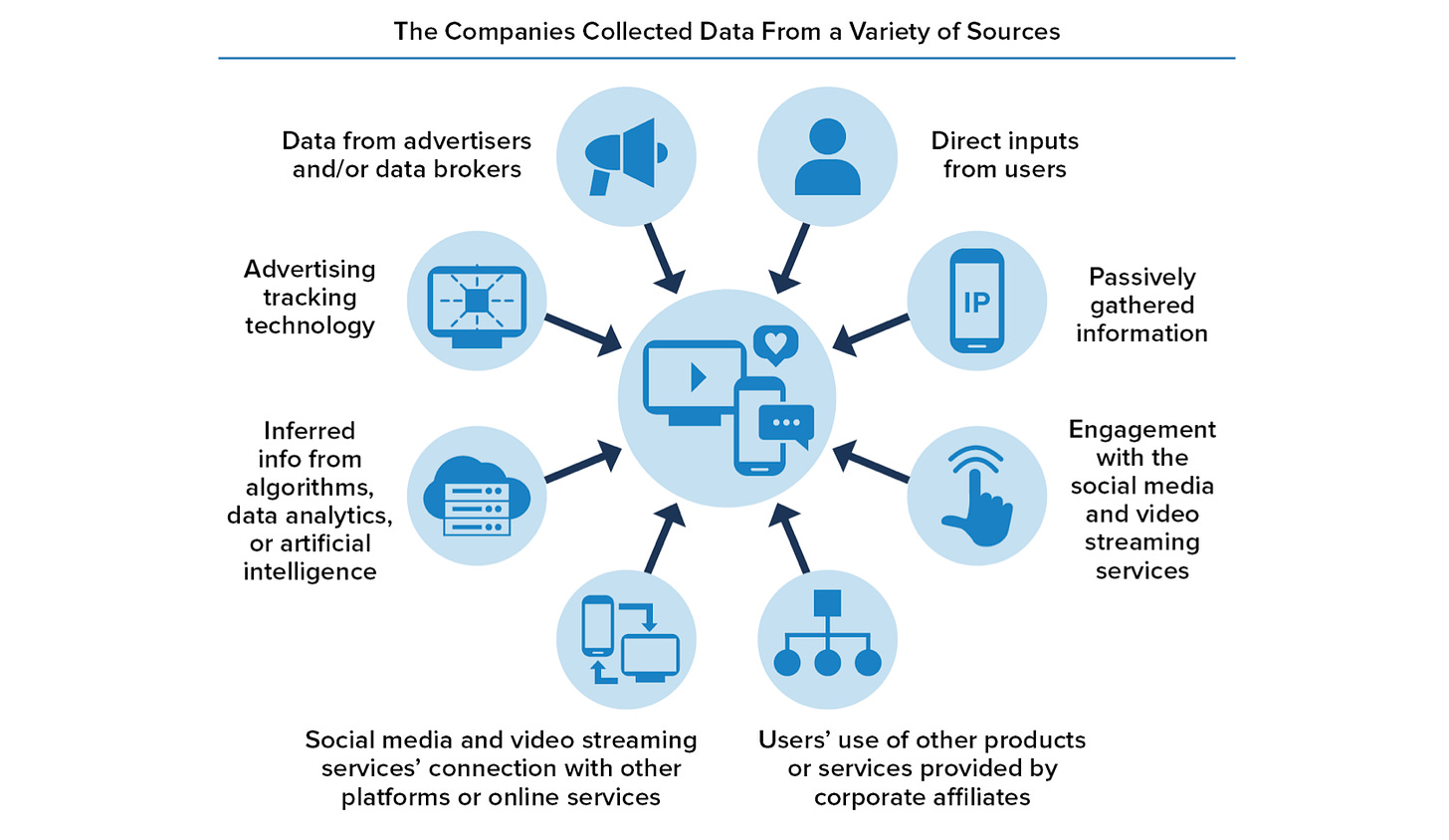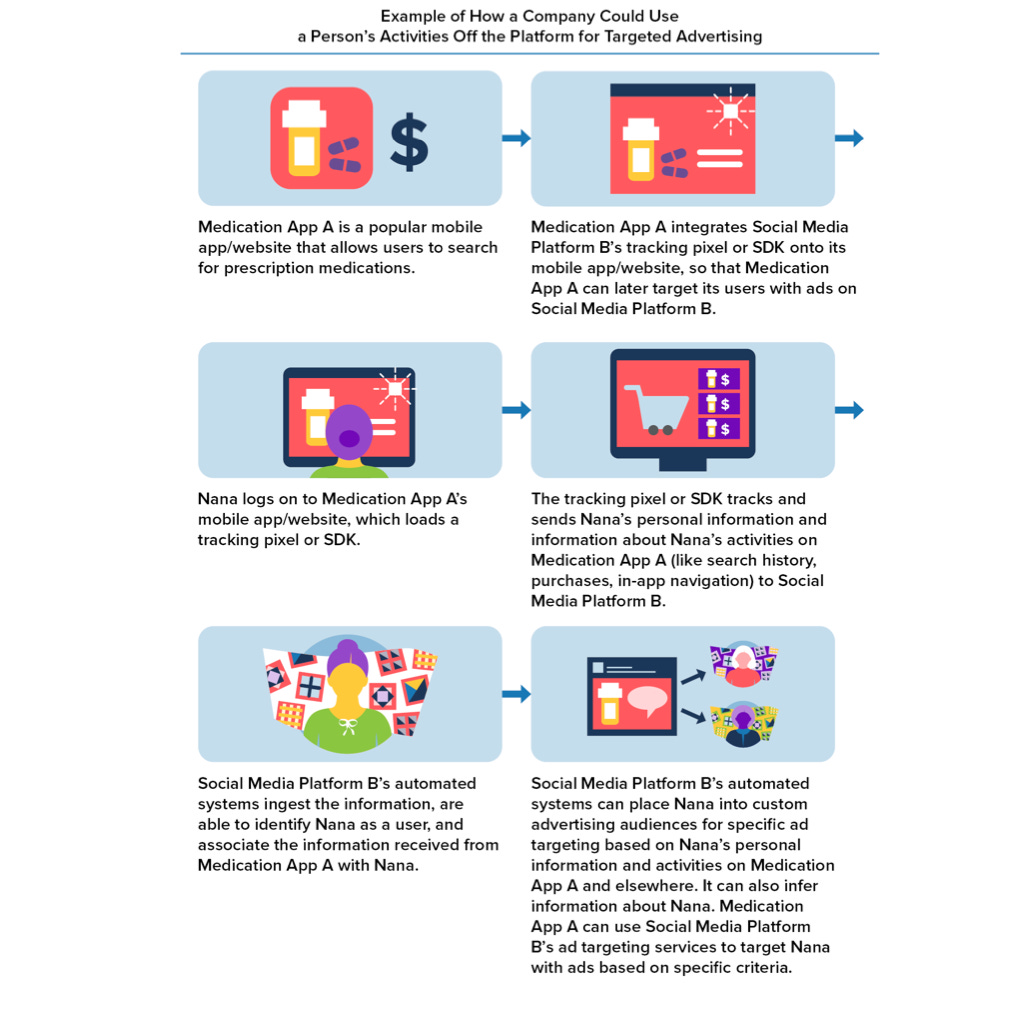FTC Report on Social Media and Data Collection
#POLICY | I’ve been fangirling over the recent FTC report about social media advertising, and data privacy. Here’s why we need to pay attention to a growing ecosystem with us at the center of it...
In September, the Federal Trade Commission (FTC) released a report, “A Look Behind the Screens: Examining the Data Practices of Social Media and Video Streaming Services.”
The FTC is very precise in explaining the complicated web of online privacy — and how it’s taking more of our data each year with an increasing lack of control and transparency.
But once you see what is happening, it’s hard to unsee it. We begin to act differently when we understand how these practices negatively affect our future, and how we get so little in exchange for our data.
The FTC explains that its report:
“…shows how the tech industry’s monetization of personal data has created a market for commercial surveillance, especially via social media and video streaming services, with inadequate guardrails to protect consumers. The report finds that these Companies engaged in mass data collection of their users and – in some cases – non-users. It reveals that many Companies failed to implement adequate safeguards against privacy risks. It sheds light on how Companies used our personal data, from serving hyper-granular targeted advertisements to powering algorithms that shape the content we see, often with the goal of keeping us hooked on using the service. And it finds that these practices pose unique risks to children and teens, with the Companies having done little to respond effectively to the documented concerns that policymakers, psychologists, and parents have expressed over young people’s physical and mental wellbeing.” FTC, Sept 2024
Breaking Down the Details
The big picture is that none of us have much visibility into what data is being collected about us and how it’s being used, nor what we can expect in terms of its management, sale, and deletion. Even the regulators are struggling to contain the situation.
Better legislation and regulation is needed foremost to control things, but there is much we can do ourselves if we just start to make small changes in our behavior.
Summary of Concerns
1. Massive Amounts of Data Collected
“I have nothing to hide” is a common refrain when faced with the facts about data collection. But it’s not what you have to hide, it’s how the sum total of this information will be used. And it’s a lot of information; including personal detail, demographic facts, interests, behaviors, and activities you've engaged with elsewhere on the Internet.
Our information is bought and sold via data brokers, weaving in additional detail such as household income, home, work or school location, and more. Want to remove it? Well, that becomes a privacy policy game of hide-and-seek to locate the relevant policy details (some of which don’t even exist). Unbelievably, a handful of these companies told the FTC that they don’t delete your information at all…even when you request it…but instead just make the info anonymous.
2. Sneaky Trackers and Pixels
Social media companies make their money largely via advertising revenue. And they sell these advertising packages based on the personal information of their users. The technology powering this ecosystem lacks in transparency. For instance, most use privacy invasive tracking technologies like pixels, which have the ability to transmit sensitive information about users’ actions on and off a social media platform. From the FTC:
“Because the advertising ecosystem is complex and occurs beneath the surface, it is challenging for users to decipher how the information collected from and about them is used for ad targeting—in fact, many users may not be aware of this at all. Some Companies’ ad targeting practices based on sensitive categories also raise serious privacy concerns.”
In-Demand Data to Train AI
Every cool new tool being launched into the market and onto social media platforms is using our data now to train AI tools. In fact, sometimes your data has been purchased from elsewhere, and you might not even use the platform using your details to train AI.
From the FTC:
“Nor were users and non-users empowered to review the information used by these systems or their outcomes, to correct incorrect data or determinations, or to understand how decisions were made, raising the potential of further harms when systems may be unreliable or infer sensitive information about individuals. Overall, there was a lack of access, choice, control, transparency, explainability, and interpretability relating to the Companies’ use of automated systems.”
Kids are Not Being Protected Either
Social media companies during interviews with the FTC admitted to doing the bare minimum to meet their legal obligation to privacy laws such as COPPA. But even more shocking is that many said that no children use their service (!?) Because, of course, their T&Cs say “no one under 13” can create an account on each’s platform. So because kids *can’t* have an account, then they *don’t*.
What We Can Do
The remedy in the report is more about regulation as a means of addressing the privacy issue, but we can do our par. In fact, the mere commercial nature of social media platforms means our consensus and use is everything.
If we slowed it all down, gave less of our info, or even stopped using those platforms we don’t live and die for, something might change.
And gaining back some control is as easy as adopting a few steps that can become habits. See my list here.








